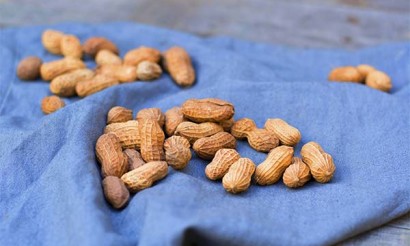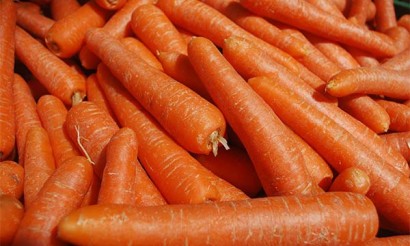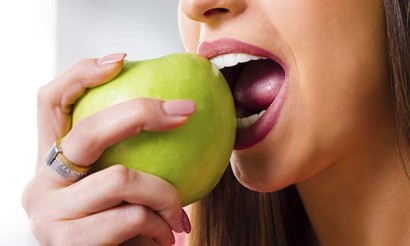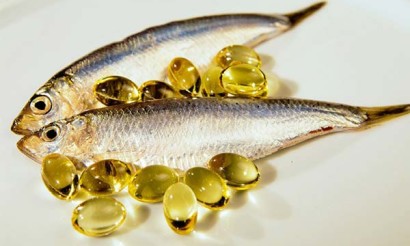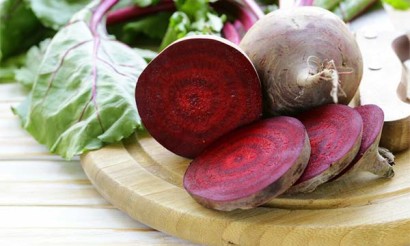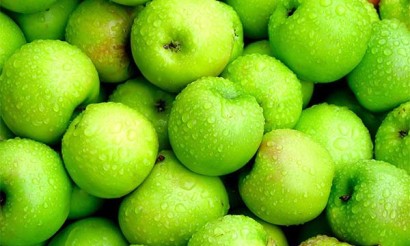Apples during breastfeeding: the benefits and harms
During pregnancy, a woman must limit herself in many products, fearing for the life and health of the unborn child. But when all the worries are behind her and the baby has already appeared in the world, the nursing mother begins to actively try one tasty dish, then another. But at the same time we should not forget: not every product is normal and without negative consequences will be perceived by the baby's body.
- Can I Eat Apples While Breastfeeding
- The first month
- The second month
- How to eat apples properly
- How much you can eat per day
- Can apples be eaten at night and on an empty stomach?
- Can I Eat Apple Pips?
- The benefits of apples during breastfeeding
- What apples are better for breastfeeding?
- Green
- Red
- In what other forms you can eat apples
- Dried apples
- Baked apples
- Apple compote
- Apple juice
- What are the dangers of apples during lactation?
- How to introduce apples into the diet of a nursing mother
Can I eat apples while breastfeeding?
Apples are the first fruits that a newborn can try with breast milk. Pediatricians allow the introduction of the baby with a variety of fruits with apples, as they are considered hypoallergenic and therefore safe, but at the same time rich in vitamins, minerals and other beneficial substances for the baby's health.

In the first month
Apples are the fruit that a nursing mother can eat in the first weeks of the baby's life. However, he just born, the digestive system is still very weak and immature, often disturbed by colic, and fresh apples can enhance them and provoke gas. So it is better to include raw apples in the diet of the mother a little later, and start the introduction of the baby with this fruit should be with a compote or a baked treat.
Some physicians believe that cooked apples lose some of the vitamins. However, most of them are preserved, as are all the minerals that make up the fruit. In addition, this way disappears the negative impact that the raw fruit has on the baby. And the mother baked apples will be useful, because they are absorbed better.
But start eating apples, even heat-treated, should be careful, take your time. On the first day you can eat one fruit, and distribute it throughout the day: the first couple of pieces - in the morning, and then carefully observe the reaction of the baby, and if everything is okay with him, you can safely continue to finish eating your apple. However, the baby's reaction may not immediately manifest itself, so on the second day of observation continue, and if the crumb is feeling well, you can eat apples on a regular basis.
In the second month.
Pediatricians recommend starting to carefully introduce raw apples into the menu by the end of the second month of a baby's life - not earlier. The first to try green fruit, as they contain less sugar, so the baby's body is less likely to react to them with colic.
Accustom the baby to the raw fruits should be the same as for baked - eat throughout the day in a small piece, closely monitoring how the child is feeling. And only if the child's body responds well, you can crunch a juicy fresh apple without fear.
How to eat apples correctly
In the first weeks after childbirth, a woman has to return to the old way of eating gradually. For many products have to "reconnaissance battle", that is, cautiously, in small doses to introduce it into your diet, to understand whether he will bring trouble for the body or not a newborn: whether it will not be allergic, not there will be problems with the stool, etc. And only after making sure that everything is in order, you can safely continue to eat this product without fear of hurting the baby.
The same should be done with apples, even if it seems that this product is centuries proven, traditional food and can do no harm. However, to make it really safe for the child, the mother will have to meet a number of conditions, in particular at first use the fruit not in raw form, and either baked or in the form of their own handmade marmalade without the use of sugar. To diversify the menu, apple products can be combined with cottage cheese.
You should avoid fruit imported from overseas countries, as they are grown with nitrates and pesticides. If you do not have your own orchard, it is better to buy local apples from grandmothers at the market.
How much you can eat a day
All doctors - both obstetricians-gynecologists and pediatricians - are unanimous in their opinion about the effect of apples on the body of a nursing mother and her baby. They are convinced that they are of much benefit both to nursing mother and baby. Doctors advise to include them in daily ration by all means, and their recommended rate is one apple a day. However, if neither the mother nor the baby does not have any discomfort when using this fruit, you can increase the rate, but eat more than 2-3 fruits is not recommended. An overabundance of the product for a long period of time is fraught with digestive problems for the mother, up to diseases such as gastritis or peptic ulcer.
In addition, women who want to quickly get rid of extra pounds gained during pregnancy, should be aware that apples, especially red ones, have a lot of sugar, and this is not very good for weight loss.
Can you eat at night and on an empty stomach?
Is it possible to eat apples on an empty stomach or not - the debate on this topic does not cease. As, however, do not stop debating about the permissibility of consumption at night. The same arguers agree - baked apples or apples in a compote - a product that is quite acceptable at any time of the day. As for raw fruit, there are arguments on both sides.
For example, opponents of eating apples before bedtime say that the human internal organs, including the stomach, begin to "snooze" in the evenings, that is, they work in a calm slow rhythm, so the gastrointestinal tract is not ready for increased stress at this time of day. And fiber, which is part of the fruit, is digested long and difficult, so the apple eaten in the late evening will not give mom a quiet night to relax, arranging in the stomach of turbulence. Will not let the mother and baby to sleep, because his body, wanting to rest, will enter together with breast milk substances from apples, which is fraught with the appearance of colic.
Proponents of late-night eating apples are sure: since they contain vitamins B and C, as well as potassium, the nervous system begins to work better, all the troubles of the day are forgotten, and sleep gets better. And thanks to apples' ability to lower blood pressure, a nursing mother who is tired during the day will be able to relax better and fall asleep sooner. And sleep supposedly speeds up the metabolism and burns fat faster, which contributes to weight loss.
The arguments on both sides have some sense, but whether it is suitable for a nursing mother and her child to eat an apple at night or not - this question is decided purely individually, and the answer in each case can only be based on personal experience. The main thing - remember that this fruit, getting late at night in an almost empty stomach, will increase the acidity of the gastric juice, which can provoke ulcers of the digestive tract. So this can only be afforded by a mommy with a perfectly healthy stomach.
For the same reason and apple, eaten in the morning, on an empty stomach, can cause and worsen the health of a nursing mother, if she has any problems with the stomach or intestines. And for those who do not know the diseases of the digestive system, it will be useful to clean the body in the morning, so as to prevent the process of decomposition of food in the intestine and its fermentation, remove toxins and flush them out gently. Apples do this wonderfully due to the presence of fiber, citric and tartaric acids.
Is it possible to eat the pips from apples
Biologists have found that apple pits contain fatty oils, protein, iodine, potassium and other minerals. With apple seeds it is quite realistic to make up for the lack of iodine in the body, which will raise your mood, improve your appetite and get rid of headaches. The solution to these problems is very relevant for breastfeeding mothers.
In addition, apple pips can serve as a means of preventing vascular threats - heart attacks and strokes, because the potassium contained in them improves heart function and normalizes blood pressure. It has been proven that apple kernels can treat inflammation of the liver and prevent anemia and constipation.
And thanks to the presence of vitamin B17, or letrill, which is found in a very limited range of fruits, apple pips can stop the development of cancer cells. This is why they are recommended as cancer prevention.
All these wonderful abilities of apple seeds would be useful for nursing mothers too, if not for one "but": they contain the glycoside amygdalin. There are different opinions about it: some doctors say that it is harmful, others, on the contrary, see no harm in it. But medical practice has noted many cases of serious allergic reactions to this glycoside - up to problems with the digestive system. In order not to harm yourself, doctors advise not to eat more than five pips in a day. But nursing women should think about the health of the baby, who because of amygdalin can get severe allergies, and postpone the use of pips until the end of the period of breastfeeding.
The benefits of apples when breastfeeding
Doctors consider the composition of apples to be unique and recommend including them in the menu of a new person, so that useful substances begin to enter the body from the first days of his life, at first - together with the breast milk.
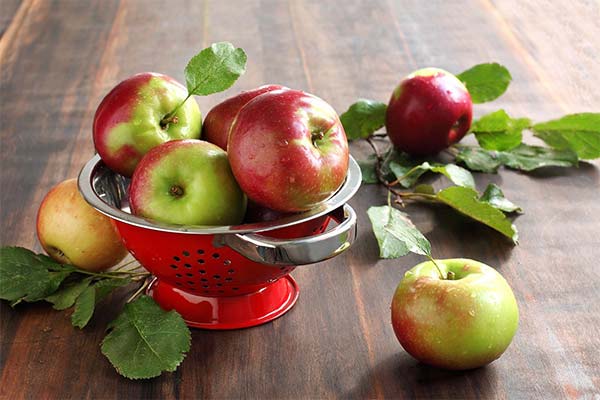
The benefits of apples are based on a large number of constituent vitamins and minerals. Fortunately, you can buy these fruits at any time of the year, so all their useful elements are available all year round. When a nursing mother eats apples, the baby's body begins to receive B vitamins: B1, which normalizes neuronal activity and improves the baby's appetite, B2, which is beneficial for the visual organs and brain function. For the mother, this substance is useful because it burns unnecessary sugar in the body, inhibits the aging process and regulates the nerves.
- Vitamin E available to the body from apples helps reduce the risk of heart disease and cancer, and is involved in the process of blood clotting, speeds up the healing of skin diseases and helps lose weight faster.
- Thanks to the high content of vitamin C, apples strengthen vascular walls, cleanse the body and help increase its immune capabilities, which makes it easier for mom and baby to cope with infections.
- The function of vitamin P in apples is to eliminate excess fluids more successfully, so that swelling can be quickly controlled and blood pressure can be lowered. In addition, this useful substance helps to strengthen the gums, as well as improve capillary health, thereby preventing bruising and bleeding.
- When they talk about the benefits of apples, always in the first place they are called a source of large amounts of iron, which is known for its ability to increase hemoglobin and to combat anemia. This is a particularly important property of apples for the mother and baby, for low hemoglobin values are not uncommon after childbirth, they occur in both the woman and her baby. Therefore, for a nursing mother it is necessary to try to introduce apples into the daily menu as early as possible, literally in the first week after the baby is born. In addition, iron is actively involved in oxygenation of the brain and stimulates the strengthening of the immune system.
- Pectin, or apple fiber, helps to improve intestinal function like a brush, cleaning it from undigested and fermented pieces of food, toxins and waste settled on the walls of the small and large intestines. This helps to normalize metabolism, eliminate constipation, which nursing mothers are often prone to, as well as lower cholesterol.
- Potassium contained in apples is an indispensable participant in the process of protein metabolism, in addition, it helps normalize kidney function, controls heart activity and brain function.
Eating apples, breastfeeding mother saturates her body and the baby's body with calcium, which is generally known as a substance that helps to strengthen bones and teeth, improve hair and nails growth, as well as to make blood vessels more elastic and strong. Calcium works in partnership with phosphorus to strengthen bone and tooth tissue, which, in addition to bones, also takes care of the state of the kidneys, improving their tissue structure, and also helps improve memory.
Which apples are healthier when breastfeeding
A breastfeeding mom should be picky when choosing apples. It is great when they are grown in your own garden. But if there is no garden or dacha, in the supermarket or market should not look closely at the beautiful, bright, smooth, without a single flaw in the fruit. Most likely, they are brought from distant countries, where they were grown using a huge amount of insecticides.
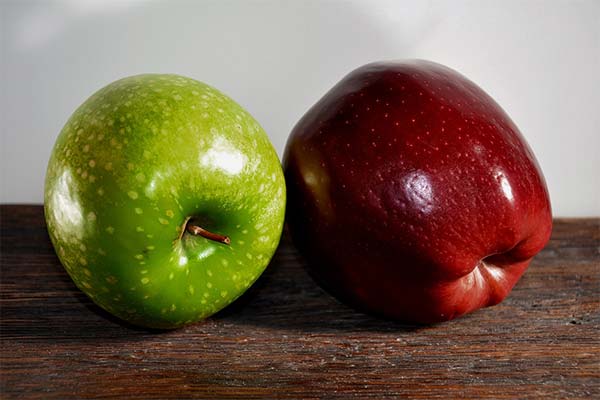
It is best to buy seasonal fruit, grown in the climate zone where mom and baby live. And, by the way, grandmothers have more than once proven method of choosing apples: they take those fruits that are slightly damaged by worm holes. This means that they have not been treated with harmful toxic preparations to control insects.
Green
Women who are breastfeeding a baby should choose green apples. They have more vitamins and trace elements, and they also contain more iron than fruits of other colors, which means they are better at preventing anemia. When breastfeeding, they support the body of the nursing mother in a difficult period, feed it useful elements and normalize its metabolism. The same baby with the mother's milk get all the valuable and useful components of fruit, which has a beneficial effect on the development of the baby and its growth.
Green fruits usually have less sugar, so they do not contribute to bloating baby's tummy and the appearance of colic. However, for the same reason they increase the acidity of the gastric juice.
It is recommended to eat green apples in the first weeks of a baby's life, since they do not cause allergies in the baby.
Red
They say that breastfeeding moms should not eat brightly colored fruits and vegetables such as red and orange, because they can cause allergies in the baby. And although it is believed that apples do not cause allergies, this statement is true for some red varieties of fruit. Sometimes a small, barely noticeable rash appears in the child is not immediately, sometimes mom for two or three weeks quietly and happily enjoys eating apples, with the baby all this time there are no problems, and then one day suddenly appears allergy! So with this product should be constantly on the alert.
In addition, red fruits are more caloric than green, and this should be remembered by women who are trying to quickly regain their former shape and lose weight after childbirth.
It is certainly safer to replace red apples with green ones. As a last resort - do not eat the skin, peel it, especially since red fruits are more effective than green ones in preventing constipation in a nursing mother.
In what other forms apples can be eaten
Fresh apples are, of course, tasty, healthy and healthy for both mom and baby. But sometimes, to diversify the diet, you can make a compote - from fresh or dried fruit - or bake an apple.
Dried apples
Dried apples have a positive effect on the digestive systems of the child and the mother. It is great if the dried apples are prepared on their own, from the fruit of their own garden. In this case, mom will not doubt their quality and worry about whether they are treated with chemicals or not.
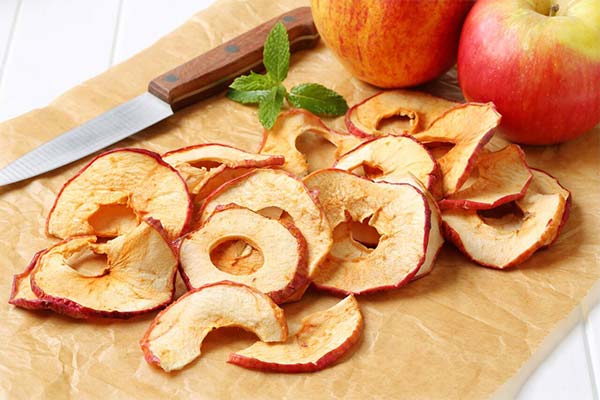
Apple dried fruit can be eaten on their own, during a snack, and cooked into a compote. To snack on dried apples, you can start by taking only two or three pieces, no more, and after eating them, monitor your child's well-being and see if he has any allergies or stool disorders. The standard daily rate of dried fruit for a nursing mother is 25 grams.
Before snacking, apples should be washed very well, pre-washed for about half an hour in a little warm water to wash off all the dust and microscopic particles of dirt, and then rinsed under running water. But this does not eliminate all the bacteria that may have settled on the dried fruit and pose a danger to the child's health. So a better way out of the situation than simply eating dried fruit is a compote of dried apples.
Such a drink will provide the body of a nursing mother with vitamins and other useful substances, and will also help her to increase the amount of milk, for which it is necessary to drink the compote in warm form. It is important not to add a lot of sugar to it, which can cause pain in the baby's tummy. If possible, it is better to cook compote without sugar at all, at most - put its minimal amount.
Dried apples can be added to baked goods, but do not get carried away with making sweet cakes and muffins while the baby is only a few weeks old. This is difficult for his immature digestive system, because it can cause bloating, and the mother because of the muffins is likely to be constipated.
Baked Apples
Baked apples in the oven - the best option for their use of a nursing mother, while the child is not a month. In this form, they are much easier to digest, do not cause discomfort in the stomach and intestines, do not have a gas-forming effect and retain, despite the heat treatment, a sufficient amount of nutrients and vitamins. To replenish the body with vitamins and other nutrients, it is enough for a mother to eat two apples a day. In baked form, fruits of all varieties and colors are delicious.
To prepare the baked fruit, you need to cut out its core, put it on a small baking tray or in a pan - and you can send it to the oven. It is possible to pour a little sugar into the hole, from where the core with seeds was cut out, and bake the fruit with it. In this case, you need to carefully observe how the sweet product will affect the baby, because fast carbohydrates, which inherently sugar is, peculiar to create a fermentation process in the digestive tract, and the result is usually colic.
Some people put honey instead of sugar, but nursing mothers are strictly forbidden: the product is a strong allergen that can harm the baby.
A wonderful dessert is obtained if you bake an apple with a filling of cottage cheese mixed with sugar. The baked apples also work well in the microwave, in which case half a teaspoon of butter should be added to the sugar, and the skin of the fruit should be pierced in several places with a toothpick.
Baked apples are also useful because they increase the content of fiber, or, in another way, pectin, which normalizes the work of the digestive tract and increases the rate of metabolism. As a result, the toxins are rapidly eliminated from the body.
Apple compote
Apple compote is able to regulate metabolic processes, saturating the tissue cells of the body of the mother, as well as replenish its stores of vitamins and other useful elements.
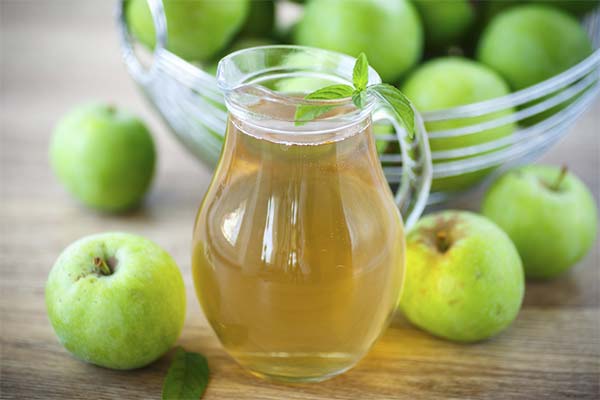
Try how the baby's first reaction to compote, should be a drink brewed with a minimum amount of fruit and sugar. If possible, try to do without sugar.
The first time you can drink an incomplete glass of compote, and then watch vigilantly for a child's reaction. If the baby has bloated tummy, gas, liquid stools, the compote should be discontinued and postponed until later. You have to wait until the baby is older. If there was no unhealthy reaction, you can boil a richer drink.
To make compote from fresh apples per liter of water is recommended to take half a pound of apples and no more than three spoons of sugar. Dried fruit for the same amount of liquid will need 300 grams. Long boil the fruit should not be enough, just bring the drink to a boil, and adding granulated sugar, take off the heat, then give the compote time to infuse, so that the fruit gave all the nutrients to the liquid.
Apple juice
The most useful juice is not store-bought, but freshly squeezed. It is quite concentrated. In order not to harm the mucous membrane of the stomach and not to cause active bubbling in the baby's tummy, a nursing mother is recommended to dilute the juice with water, taking the liquid in equal parts. Sugar is not added to such a juice - an exception can be made only when the original apples were very sour.
If there is no possibility to make juices yourself, you will have to make do with store-bought ones. But you should take into consideration: in those beverages packed in Tetra Pak packages sugar and preservatives are usually added at the best, at the worst - and coloring agents, as well as other far from useful substances, which people usually call the word "chemistry". It is smarter to opt for clarified juice in a glass bottle.
During the day, it is allowed to drink up to a liter of juice, if she has such a desire, but to introduce it should start with a glass, be sure to monitor the child.
What are the dangers of apples during lactation?
If the mother herself before pregnancy and childbirth did not have any health problems after the use of apples, then during breastfeeding everything should be fine. But the baby's body can give an unforeseen reaction.
First of all, it is quite possible small skin rashes or irritation of an allergic nature, especially if mom is a fan of red apples. In this case, you need to stop eating them and wait a couple of weeks. And then retry to eat one fruit and watch the baby's skin more closely - perhaps the allergy was accidental. It can be caused by the fact that brought from the edge of the world and bought in the supermarket beautiful apples have been treated with chemicals to give them a presentable appearance.
In addition to allergies, apples can provoke gas and bloating in a child. Such a reaction is not surprising if the mother has the same problems. In addition, fresh raw apples can increase the acidity of gastric juices and if overeating can lead mom to gastritis or even a stomach ulcer. The acid in apples is also dangerous for the teeth. Their enamel begins to deteriorate quickly under the influence of an acidic environment. And if you have problems with the heart and blood vessels, it is better not to eat sweet apples.
How to introduce apples into the diet of a nursing mother
So, in the first month of life, the best choice for a nursing mother will be apples baked in the oven or microwave. But even this, the safest for the infant body, the product should be introduced gradually, under constant monitoring of the child's condition. If there was a rash, bloating, more than usual colic disturbance - a nursing mother will have to postpone the use of apples for at least two weeks. After such a period of time you can try to eat a baked apple again.

Important rule: The first fruit should be distributed throughout the day. Having eaten a couple of slices in the morning, you need to watch the reaction of the child until lunch. You can finish eating an apple only if the baby's gastrointestinal tract is not abnormal. At the same time, no new products that mom has not yet tried after the birth of a baby, you can not eat, so that in case, for example, a rash, do not get confused, for which dish was such a response of the infant's body. And for a child, a double load of unfamiliar foods and flavors is not acceptable.
The optimal time for the introduction to the ration of nursing mothers raw apples - the end of the second month of life of a baby, or the beginning of the third. The scheme of their introduction is similar: first in the morning to try a couple of pieces, and then wait to see how they respond to the gastrointestinal tract of the child.
But with raw apple should be more careful than with baked, and on the day of the first acquaintance kid with a fresh fruit finish it to the end should not be. If within a day there are no signs of discomfort with the baby, acquaintance with a treat can be continued the next day.
If the child is allergic to the fruit, mom will have to forget about the apples for a couple of months.
«Important: All information on this site is provided solely for introductory purposes. Before using any recommendations, consult a specialist. specialist before using any of the recommendations. Neither the editors nor the authors shall be liable for any possible harm caused by materials."

